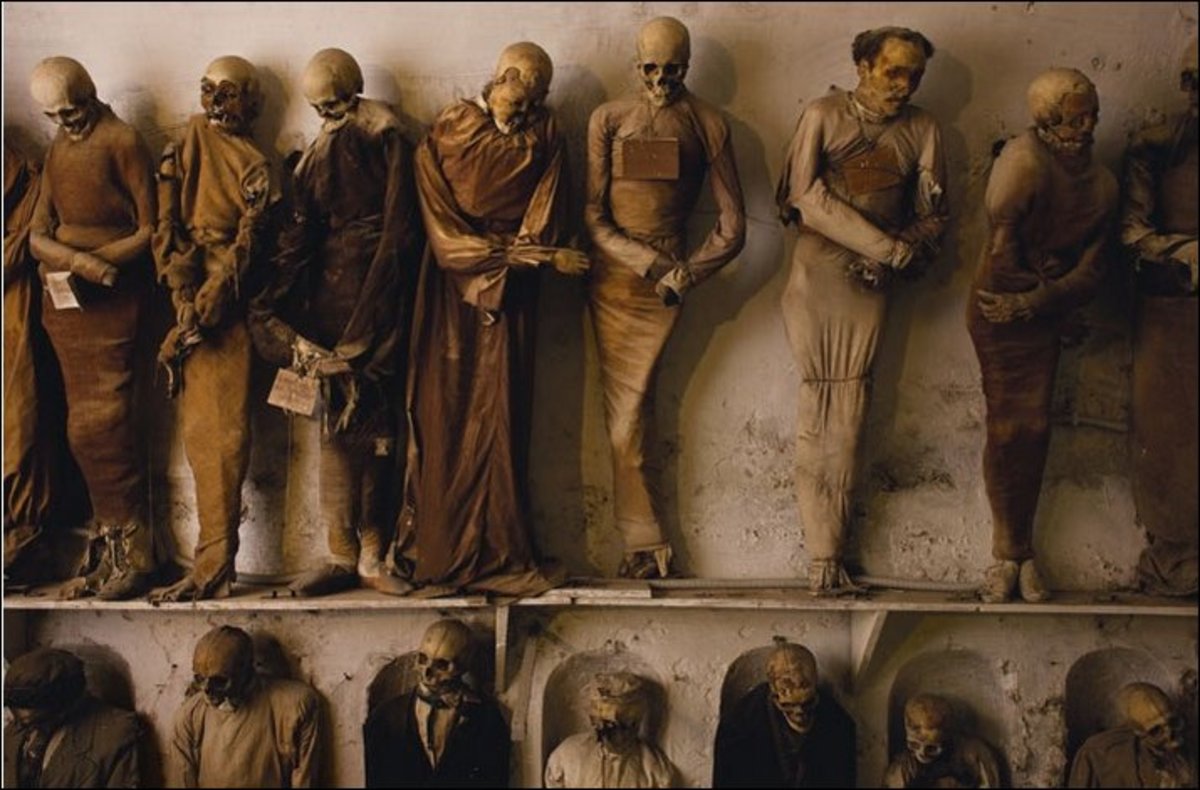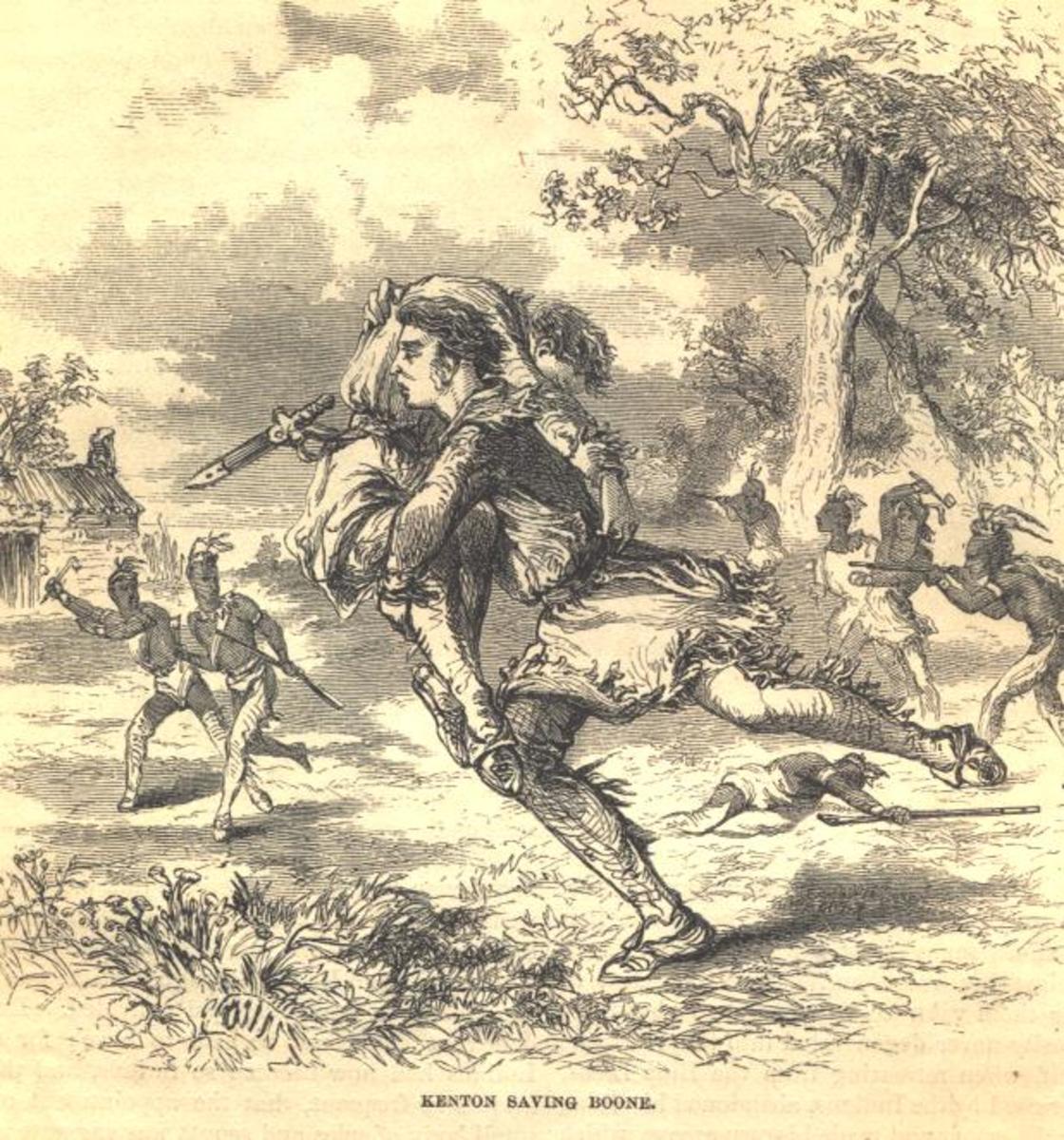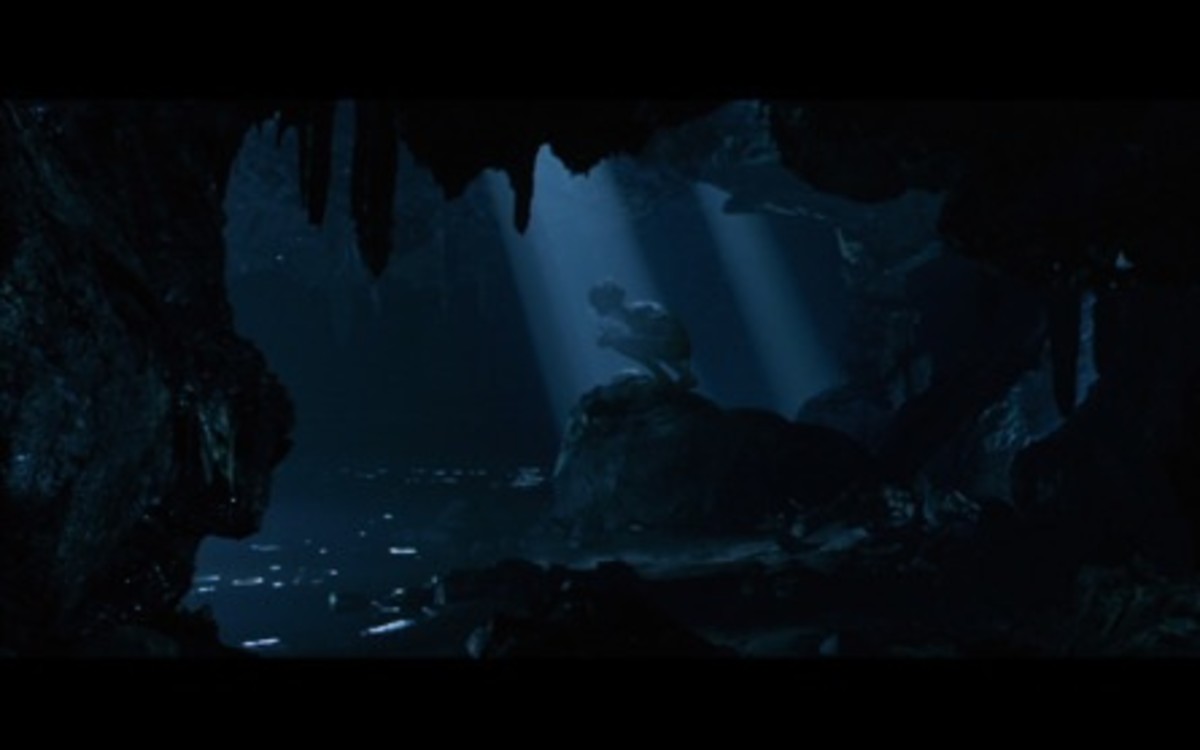Book Review and Analysis of The Remains of the Day by Kazuo Ishiguro
The Remains of the Day is a book by Kazuo Ishiguro, published in 1989, and set during the in-between times of post-War England. Ishiguro's third novel is highly respected, having won the Man Booker Prize for Fiction. In 1993, The Remains of the Day was adapted as an Oscar-nominated movie by Merchant-Ivory.
Although it wasn't quite what I was expecting, The Remains of the Day surprised me, thrilled me, and sits on the mountain of magical memory along with many other well-loved books. At first, I was mildly bored, but being the sort that believes that not finishing a book is a practically unthinkable crime, I continued on. As I continued, I thought, "What a solid novel" - "solid" being the only suitable adjective I could think of. Still I read, and, although I was occasionally annoyed at the rambling narrative style and the jumping between past and present, I came to realize that this is a novel of great depth, complex characters, subtle humor, and lasting themes. By the end of my 245 pages, I was in love with it.
The Remains of the Day is an armchair book, ideal for my fellow Anglophiles. It's the sort of read to be enjoyed by a quieted mind in the sole company of a warm fire (imaginary or otherwise) and a pot of tea (preferably unimaginary). With a storyteller like Kazuo Ishiguro, you won't be disappointed.

Mr. Stevens
The narrator of the story is Mr. Stevens, who is also the main character. But as one reads, one must realize that this character has flaws (as all good characters do) and can't quite be trusted for an unbiased version of the story. Indeed, our hero changes his mind about certain topics several times throughout the book, and we must learn to read between the lines. This is a display of Ishiguro's brilliant storytelling talent. He gives us a man, not entirely likeable or exciting, but a man we struggle to understand, first because we think there is nothing important to comprehend about him, but then later because we realize he has a hidden character with a complex emotional and intellectual past.
Stevens is a butler, serving an English lord before and during World War II and an American gentleman during the days afterward. The fact that he is a butler shows Ishiguro's interest in exposing the heart of a man working in a profession which is dying out and which is not often described in detail or depth in literature.
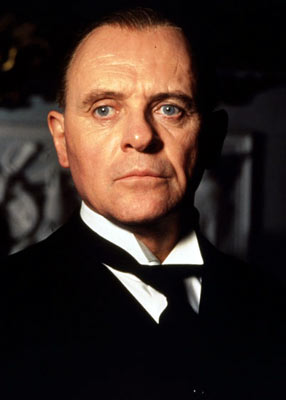
As an old-fashioned English butler, Mr. Stevens is efficient, meticulous, and strictly professional. His world is very structured and depends on perfection of detail for it to run smoothly. Despite the flux and waning of life around him, Stevens is determined to confront every situation with the same calm dignity he believes is suitable to his position as a butler.
Stevens is narrating the story in the present, describing a journey he is undertaking as one of the few vacations he has ever enjoyed. While he drives his master's car out west, he contemplates the past (his days working under an influential man during the war) while also thinking about the person he is about to see at the end of his journey - Miss Kenton.
Miss Kenton
Miss Kenton, the heroine of the story, pops in and out of the boook, as she pops in and out of Stevens's mind, which is quite frequently. All we know of Miss Kenton are the perceptions of Stevens, and I rather wish I could hear her side of the story. Stevens colors the character of Miss Kenton through various events that occurred during the years they spent working together. His feelings for this faithful housekeeper are revealed gradually through the book, but only if we can reach into his mind and read the thoughts he won't speak aloud.
When Miss Kenton first came to Darlington Hall, Stevens tells us that he and she clashed somewhat over various household issues and jurisdiction. As the two leaders of the numerous staff at the hall, both Mr. Stevens and Miss Kenton must learn to work together in order for the household to run smoothly. As the years went by, they grew in their respect for one another. We read of the evening chats they would have over hot cocoa after the day's work was over. Stevens describes these talks as being of a professional nature, but we can safely gather that they also bear the weight of friendship and perhaps the possibility of something more.
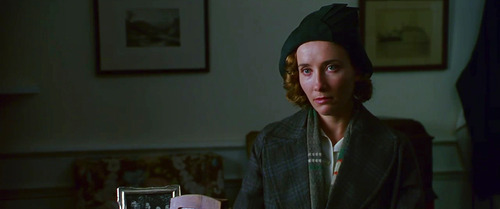
As the present narrative rolls on, we know that Miss Kenton is now a Mrs. Benn who resides a few days' journey away from the Hall, and that Mr. Stevens is going to see her in the hopes of hiring her back on the staff of Darlington Hall after receiving a letter from her which told of the separation between her and her husband. At least, that is the motivation of which Stevens tells us. But we soon realize that there are perhaps other reasons he wishes to see her.
Lord Darlington
Lord Darlington, though an aristocrat, is always in the background of the story. He is the employer of Stevens, and he trusts his butler more than almost anyone. The thirties and forties were tumultuous times for England, and Lord Darlington found himself in the middle. We know that Stevens has the utmost respect for his employer and never doubted his good intentions and upright behavior. We read of Darlington's influence on politics: how he is able to gather together influential men in his home for meetings, how he is interested in promoting peace. Though he sometimes makes mistakes, he has good intentions, or else Stevens defends his employer's reputation. But in the end, we find that Lord Darlington, while trying to do good, in reality aided Hitler and his propaganda in England, ending his days in dishonor. Darlington represents the fading of the aristocracy, giving way before a new way of life and a new kind of people.
Mr. Farraday
Mr. Farraday is the employer of Stevens in the present day. An American, Mr. Farraday replaces Lord Darlington in Darlington Hall. His way of life is different from his predecessor, and much of the great house is closed down to accommodate his simpler life and smaller staff. Whereas Lord Darlington was a stately English gentleman, Mr. Farraday, also a gentleman, comes from a different perspective. His manner toward Stevens is very revealing. He talks to Stevens in a bantering fashion, making Stevens feel as if he must return the conversation with some witty comment. Unused to this, Stevens is rather bad at bantering, at this new way of life. The old world is passing away, and Stevens finds himself passing with it.
Dignity
Dignity is a key theme in The Remains of the Day. Stevens often talks about it as though it is the ultimate virtue of a butler. The holding of this trait means the attainment of greatness in his world. He seeks this dignity with such fervor that he comes across as a rather hardened and emotionless man. Stevens has a serious nature, and he recalls many incidents in which we see hiim acting truly dignified, even when caught in extremely emotional situations. When his father dies in th midst of an important political dinner, Stevens goes about his work with an exterior that is so calm and emotionless, it is almost shocking.
This dignified demeanor appears to be an ugly look at a man without a heart, without any feelings. But we learn as we read that his calm composure is not indeed the absence of emotion, but rather the masking of it. Behind the mask is a man with complicated emotions, suppressed feelings, and a self-imposed duty to put work before all else. This man has grown old and he rambles as he considers whether he has lived up to his own standards. But the dignity is always there.
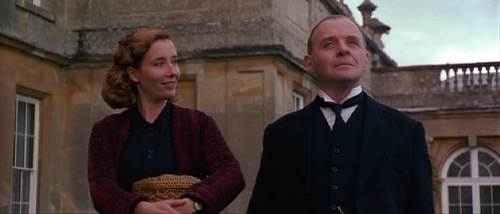
The End of the Journey
The last chapter of the book is by far the most emotional and most revealing. As Stevens reaches the end of the journey, he finds himself in the company of Miss Kenton, now Mrs. Benn, enjoying a private conversation with her on a rainy afternoon. They find each other much the same as always, only older. Stevens learns that in the days since Miss Kenton's letter detailing her separation, she has returned to her husband's house. They have a married daughter who is expecting a child. Stevens and Miss Kenton talk mostly of the happy memories they share, from the glory days of twenty years ago. Much has changed since then, but still they remember the good days.
As their time together is ending, Stevens asks what has been on his heart the entire journey - not about Miss Kenton returning to the staff of Darlington Hall, but about her unhappiness which seemed to be apparent in her letter. Miss Kenton replies that although she has regrets - regrets about what could have been with Mr. Stevens - she is not entirely unhappy. She has moments when life seems dismal, but the days go on and one can't turn back the clock. They agree that yes, they can't turn back the clock, and they must continue on as they have always done. Mr. Stevens encourages Miss Kenton to enjoy herself and her husband, to make the most of the life she is given. And then she leaves on the bus in the rain, and Stevens is left with his own regrets, and a heart that is broken now that he truly realizes the possibilities that he gave up. But through it all, he covers himself with the dignity that he has always prized.
Remains of the Day
As we reach the end of the book, Stevens is at the beginning of the dusk of his life, and he contemplates his past, weighing his actions on the scales of dignity and purpose. Were his many years spent at Darlington Hall all for nothing? He sacrificed every hour of every day working in the house of another man. He gave up his only chance at happiness with Miss Kenton. He spent the prime of his life serving a man who in the end was labeled a failure. What was it all for?
Stevens talks of how he thinks that butler's duty is to serve a good gentleman faithfully, without questioning the actions of said gentleman. But later, as the world changes, he doubts whether this was the best course after all. He questions whether there is any dignity in not making his own mistakes, in leaving the living up to Lord Darlington while merely working behind the scenes of importance.
As the remains of the day sink beneath the horizon, Stevens sits on a bench waiting for the light to fade. "I gave my best to Lord Darlington. I gave him the very best I had to give, and now - well - I find I do not have a great deal more left to give."
There is an elderly man sitting beside him on the bench. The man says, "You've got to enjoy yourself. The evening's the best part of the day. You've done your day's work. Now you can put your feet up and enjoy it."
We leave Stevens in the dying light of an age, as he determines to practice his bantering technique and get back to work at Darlington Hall.
Trailer for the movie "The Remains of the Day"
Love Literature?
- Book Review of Howards End by E.M. Forster
Howards End by E.M. Forster was originally published in 1910. The novel is set in Edwardian England and deals with the conflicts between social classes, developing an overall theme of humanism. As... - Book Review of America's Youth vs. Big Government by...
Are you discouraged by the current state of the nation? Are you disheartened at your small ability to make a difference in the future of our country? With the economic crisis and the rise of the so-called... - Famous Welsh Writers
This hub is dedicated to the celebration of Saint David's Day. Wales is a small country in the United Kingdom. Even though it is a small component of a greater union, Wales has its own identity, its own... - John Keats and His Bright Star, Fanny Brawne
It took me about thirty seconds of the trailer to fall in love with the movie Bright Star. In those thirty seconds I saw everything I love in a movie: period costumes, literary characters, classical music,... - Margaret Hale, The Heroine of North and South
One of the strongest female characters in English literature is Margaret Hale, the heroine of North and South, written by Elizabeth Gaskell. She may not have the wit of an Elizabeth Bennet, nor the... - Top 15 Reasons Why Americans Love England
There seems to be a running trend nowadays among Americans. We are in love with England! Its the British Invasion! Back in the 60s, the British Invasion meant The Beatles and The Rolling Stones, but to... - A Series of Unfortunate Events by Lemony Snicket
Lemony Snicket opens new horizons with - The Talking Mice of Children's Stories
Over spring break, a friend of mine asked me to keep her pet mouse. I've had plenty of pets over the years, but never a mouse. Although I would hesitate to get my own pet mouse, I really enjoyed taking care of...


